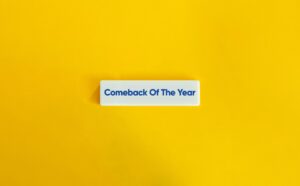After over 20 years’ traveling the world researching, talking about and helping organizations build courage, you would think there was nothing that could phase me.
I’ve answered thousands of questions about courage, and helped thousands of business leaders overcome doubts about their ability to act and lead courageously. I am passionate about courage as a tool for improving our professional lives, and like to think I understand it very well.
So imagine my surprise when, recently, I was invited to give a TED talk and my first thought was a distinctly non-courageous one: Am I good enough?
Crazy right? Here’s me, an expert in Courageous Leadership with years of speaking experience – feeling self-doubt. TED is every speaker’s dream – big stage, bigger audience, a chance to bring our message to the world. Was I equal to the task? I could easily imagine myself drafting a polite, regretful email: So sorry… Unfortunately I won’t be able…
Then I stopped. I remembered to do ONE thing – ONE thing that is guaranteed to help anyone, anywhere, at any time, feel more courageous and 4 months later, I was on stage at TED.
WATCH: How To Build Your Courage – Cindy Solomon @ TEDx
What stops us from being courageous?
There’s a great quote that I like to use when talking about courage:
“Courage is not the absence of fear. It is the ability to move ahead in spite of your fear” – Rollo May
Courage = fearlessness is a great myth, one of three key “Courage Stranglers” that my team and I have identified in our decades-long study on the subject. A “Courage Strangler” literally chokes our ability to act courageously. They even choke our ability to imagine ourselves acting courageously – according to our data, only 1 in 3 people would describe themselves as courageous.
Why Is Courage Important?
Let’s think about that 1-in-3 statistic. In today’s world, the problems we face seem almost too big to be tackled. How can we, as individuals, possibly contribute to a shift in something as big as global politics, or climate change? Yet our research shows that courage is contagious, and cumulative. The small, everyday courageous actions of one person can ladder up and out to have vast ramifications in our families, our businesses and even our world. Now, imagine the scale of that impact if ALL of us -not just one in three of us- felt able to act courageously?
The Courage Muscle
Once we understand the importance of courage and accept that fear is normal, the next step is to make ourselves move ahead in spite of it. This is where your “Courage Muscle” kicks in. Just like any muscle, courage must be used to be strengthened, built up gradually through performing a set of key actions or “exercises” that help promote courageous behavior. And, just like exercise, this isn’t always a comfortable process – but it does lead to results.
So, coming back to me, sitting at my laptop, thinking about how easy it would be to hit Send on a big fat “NO” to the folks at TEDx. Am I feeling fear? You bet I am. But I also know that this could be an opportunity to inspire thousands of people to act more courageously, and, maybe, even change the world a little for the better. So I do ONE thing. I flex my Courage Muscle.










